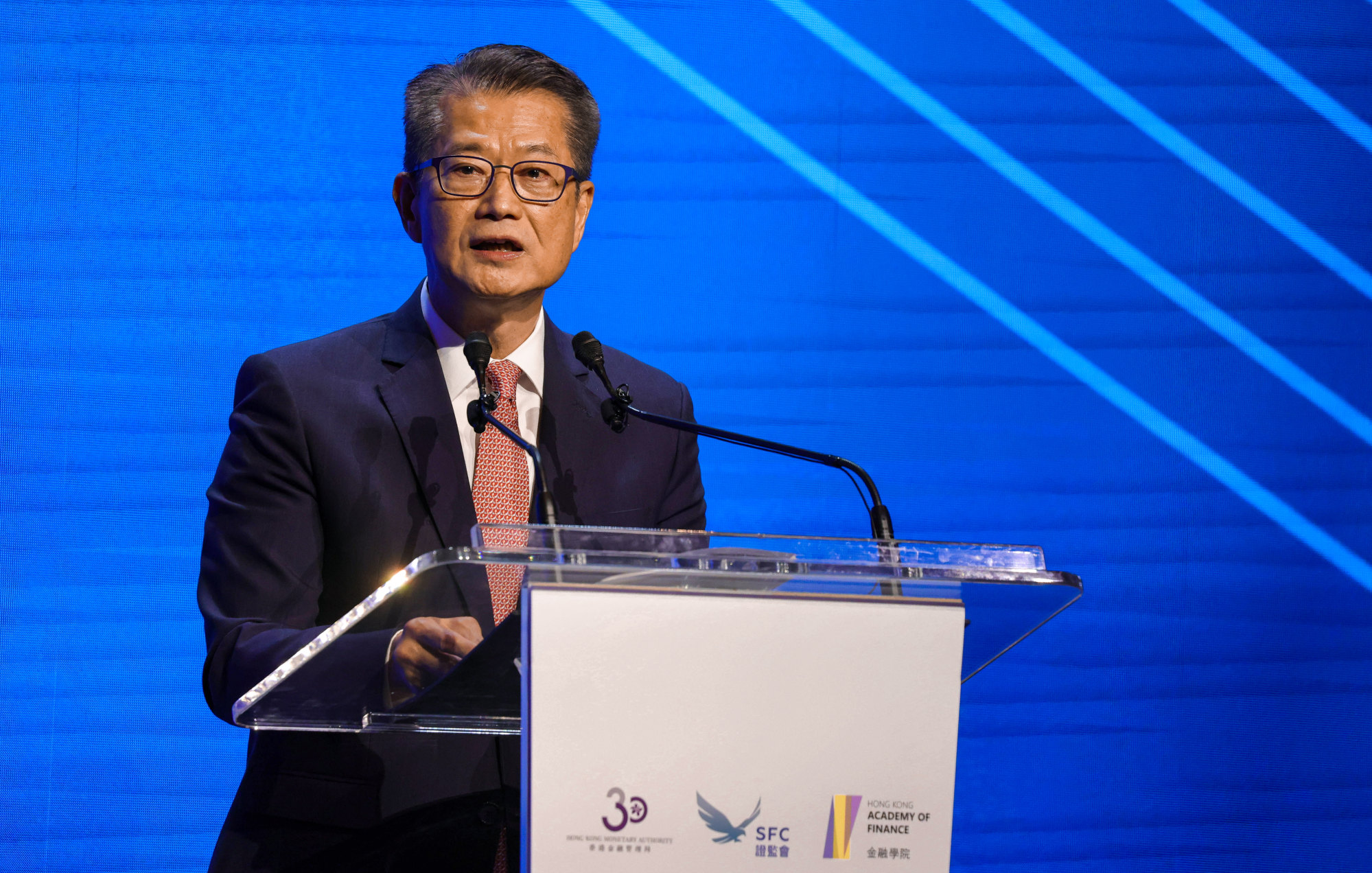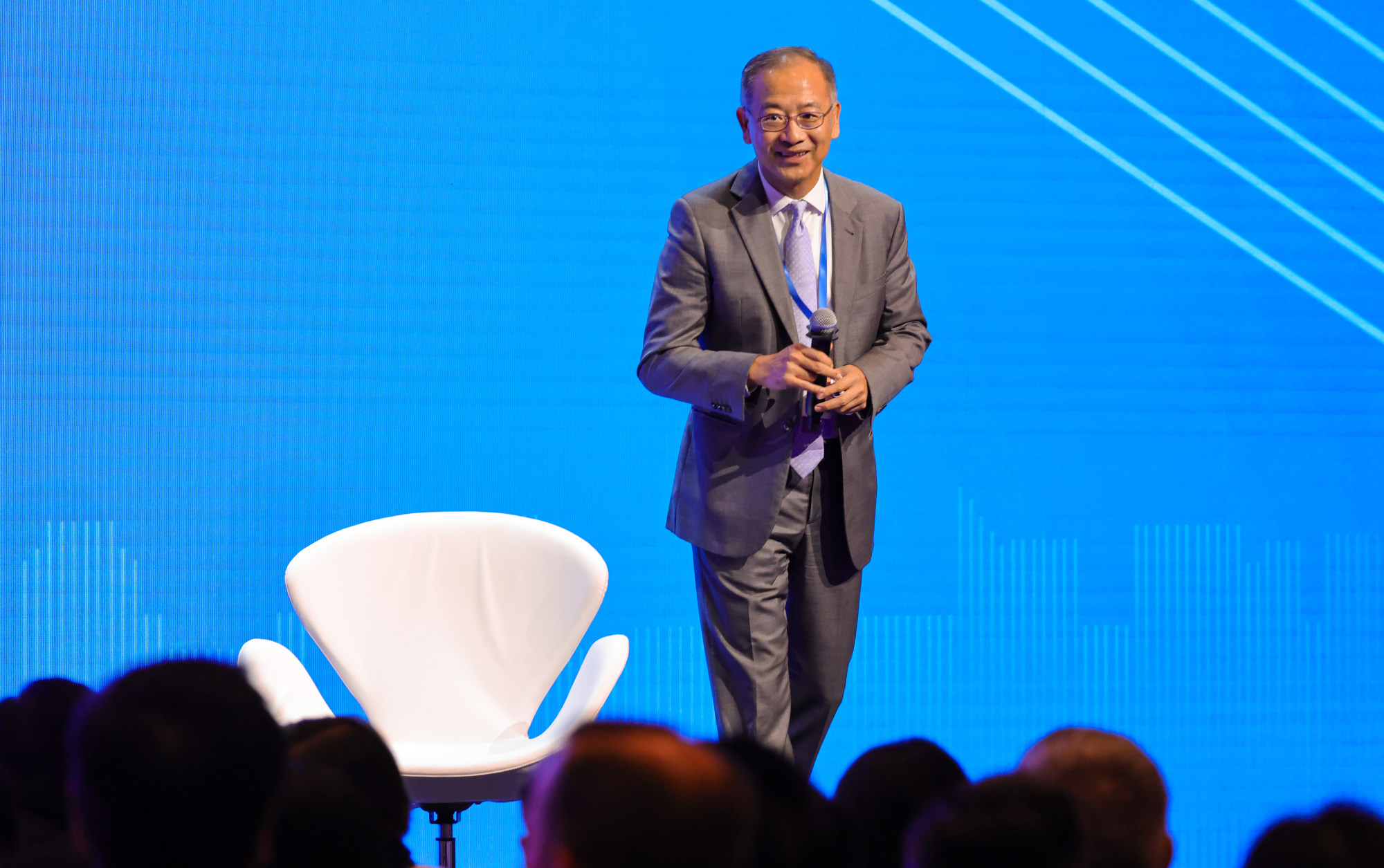Hong Kong offers enormous investment opportunities for international money managers as the city positions itself as a hub for sectors like technology, healthcare and green finance as well as a conduit for investment flows to the Middle East, the city’s financial chief told a gathering of top global financiers on Wednesday.
“Hong Kong is determined to develop innovation and technology as a core engine of growth,” he said. “The innovation and technology ecosystem in Hong Kong has grown more vibrant, with exciting achievements in nurturing start-ups and in attracting enterprises and talent.”

This type of bonds and loans issued in Hong Kong increased by more than 40 per cent year on year in 2022 to US$80.5 billion, a third of Asia’s total, he said.
Some top bankers and fund managers share this view. Hong Kong can be a leading hub for green finance due to its proximity to mainland China, with sound regulations already in place for such investment products, giving the city a head start, according to Valerie Baudson, CEO of Amundi, who spoke at a panel at the summit on Tuesday.
Hong Kong treats top bankers to banquet, cultural show to launch summit
Hong Kong treats top bankers to banquet, cultural show to launch summit
Also speaking at the summit was Julia Leung Fung-yee, CEO of Securities and Futures Commission, Hong Kong’s market regulator, who said that markets will continue to face a lot of uncertainty.
“The disruption to global supply chains is accelerated by geopolitical tensions, which conflicts with national security concerns with trade tensions and technology competition, in an increasingly divided world,” Leung said in opening remarks at the final day of the summit, where the theme is “Conversations with Global Investors”.
Leung also believes interest rate would remain elevated for some time, but she believed the fund industry can “turn the challenges into opportunities” by adopting better risk management and asset allocation practices.

And despite ongoing geopolitical tensions in the world, Hong Kong is expanding to other markets as the adverse conditions present new opportunities, Financial Secretary Chan said.
“Challenges come with opportunities. Many countries, such as those in the Middle East and Europe, have actually been driven to diversify their investments to this part of the world,” Chan said.
“Here in Hong Kong, we are keen to capture such opportunities. Over the past year, the Hong Kong team has been actively stepping up our collaboration discussion in the Middle East.”
“We will certainly welcome the first ever ETF of Saudi Arabia to be released here on our stock exchange. This is a milestone and an important step towards mutual market access,” Chan said.
HKMA CEO Eddie Yue Wai-man said this year’s summit had achieved its goal of telling the real story about Hong Kong to the 300 attendants from 170 financial firms, with almost 100 of them being C-level executives.
“Many speakers gave remarks that showed their confidence in Hong Kong,” said Yue at the conclusion of the event. “It is good to let these global financiers tell a good story about Hong Kong to the international world.”
Deutsche Bank’s board met in Hong Kong this week, underscoring Yue’s push for global bankers and money managers “to see for themselves” Hong Kong’s vibrancy. He hopes that the personal impressions in the board room can turn into investments in the city.
“It will benefit the city when these organisations decide on whether to choose Hong Kong as their Asia headquarters,” he said.
Deutsche Bank is holding its board meeting here during the summit, while several Swiss private banks had met local regulators expressing their interests in Hong Kong’s new measures to attract family offices.
Yue said it was yet to be decided whether to turn the function into an annual event. “The HKMA is collecting the views from the participants on whether it should turn the summit into an annual event. While it is good for the annual event, it may not be easy to have so many C-level attendants every year,” he said.

